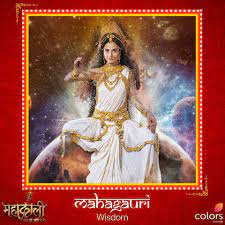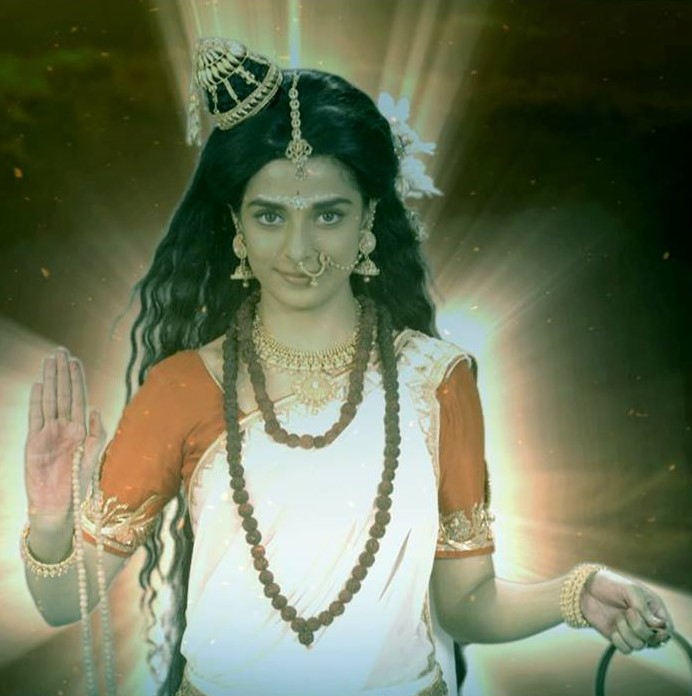Navratri, with its diverse celebrations and traditions, provides a beautiful opportunity for people to connect with their spiritual selves and experience the rich tapestry of Indian culture. The worship of different forms of the goddess during these nine days is a testament to the depth of spirituality in Indian traditions and serves as a reminder of the importance of the divine feminine energy in our lives.
Importance of Eighth Day (Ashtami) Of Navratri
The eighth day of Navratri, known as Ashtami, holds immense significance in Hindu culture and is celebrated with great fervor. Here’s a detailed explanation of its importance:
1. Worship of Goddess Durga: Ashtami is dedicated to Goddess Durga, who is believed to be in her most powerful and fearsome form during this day. Devotees offer special prayers and conduct elaborate rituals to honor her.
2. Marking the Triumph of Good Over Evil: It is believed that on this day, Goddess Durga defeated the demon Mahishasura, symbolizing the victory of good over evil. This mythological event is celebrated during the festival.
3. Kanya Puja: On Ashtami, young girls, often referred to as “kanyas” or “kanjak,” are worshipped as embodiments of the divine feminine energy. This ritual is known as Kanya Puja and is performed by offering them food, gifts, and blessings.
4. Fasting: Many devotees observe fasts on Ashtami to seek the blessings of Goddess Durga. These fasts often involve consuming simple and satvic (pure) foods.
5. Cultural Celebrations: Various regions in India have their unique ways of celebrating Ashtami. In some places, people organize Garba and Dandiya dances, while in others, processions and cultural performances are common.
Legend of Mahagauri (Goddess of Purity)
Devi Parvati’s transformation into Mahagauri is a divine narrative that symbolizes purity and the power of penance. According to Hindu mythology, Parvati, the daughter of King Himavan, embarked on a rigorous and austere meditation to win the heart of Lord Shiva. Her unwavering devotion and dedication led her to become one with nature, immersing herself in the elements. Over time, her appearance underwent a profound change. She turned fair, and her radiance became so intense that she was known as Mahagauri, which translates to “the greatly fair one.” This transformation not only signifies the immense inner strength and determination of Devi Parvati but also highlights the purity and brilliance that comes from deep spiritual practice. Mahagauri is revered as one of the forms of the Goddess Durga, embodying grace and purity, and is worshipped during Navratri, particularly on the eighth day, Ashtami.
Spiritual Practices and Vedic Rituals for the Eighth Day (Ashtami) of Navratri
The eighth day of Navratri, known as Ashtami, holds immense significance in Hindu culture and is celebrated with great fervor. Here’s a detailed explanation of its importance:
1. Worship of Goddess Durga: Ashtami is dedicated to Goddess Durga, who is believed to be in her most powerful and fearsome form during this day. Devotees offer special prayers and conduct elaborate rituals to honor her.
2. Marking the Triumph of Good Over Evil: It is believed that on this day, Goddess Durga defeated the demon Mahishasura, symbolizing the victory of good over evil. This mythological event is celebrated during the festival.
3. Kanya Puja: On Ashtami, young girls, often referred to as “kanyas” or “kanjak,” are worshipped as embodiments of the divine feminine energy. This ritual is known as Kanya Puja and is performed by offering them food, gifts, and blessings.
4. Fasting: Many devotees observe fasts on Ashtami to seek the blessings of Goddess Durga. These fasts often involve consuming simple and satvic (pure) foods.
5. Cultural Celebrations: Various regions in India have their unique ways of celebrating Ashtami. In some places, people organize Garba and Dandiya dances, while in others, processions and cultural performances are common.
These rituals can help you attain spiritual growth and inner peace. The reverence and devotion expressed through these rituals are a testament to the deep-seated spirituality that is an integral part of Indian culture.
Remember that the most important aspect is to perform these rituals with a pure heart and devotion, as the sincerity of your prayers is what truly pleases the goddess.
About Author

Spiritual Coach Anupriya is a seasoned holistic health coach based in Dehradun, India. With expertise in Astrology, Tarot Card Reading, Reiki Healing, and more, she guides seekers towards holistic well-being. Her profound knowledge in psychology enhances her mission of offering spiritual guidance and healing to those in need. She’s the founder of DISHA Academy which is part of Divine Instrument.




